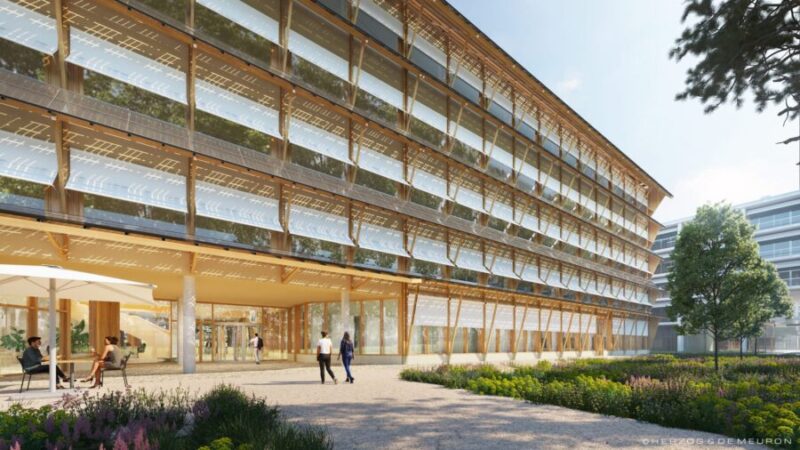Basel receives multi-billion euro immune research institute

The Botnar Foundation is investing one billion Swiss francs in the establishment of the Botnar Institute of Immune Engineering (BIIE) in Basel. Together with the University of Oxford and ETH Zurich, the institute will develop new immune-based diagnostics and therapeutics.
The Botnar Foundation has donated one billion Swiss francs to establish the Botnar Institute of Immune Engineering (BIIE). This institute will be located in Basel, more precisely in Allschwil, and aims to develop novel immune-based solutions for the diagnosis, treatment and prevention of diseases. The BIIE is being set up in collaboration with the University of Oxford and ETH Zurich, with other international partners to follow.
Strategic choice of location and expansion plans
The research centre in Basel was able to prevail over renowned locations in the USA, England, Israel and Singapore. By 2027, the BIIE will move into its own building in the Switzerland Innovation Park Basel Area in Allschwil, which is being designed by Herzog & de Meuron. For the time being, the institute is housed in the Department of Biosystems Science and Engineering at ETH Zurich in Basel. It is planned that a total of 300 employees, including scientists and support staff, will work at the institute.
Priorities and international collaborations
BIIE will focus on the development of computer tools and immune-based solutions. Together with the University of Oxford, the Basel-Oxford Centre of Immune Engineering will be established, which will include professorships and training programmes for students. This collaboration will advance basic and clinical research, particularly for children and adolescents in poorer countries.
Leading personalities and administration
Stephen Wilson, former Chief Operating Officer of the La Jolla Institute for Immunology, will serve as CEO of BIIE. Sai Reddy, Professor of Systems and Synthetic Immunology at ETH Zurich, will serve as Scientific Director. Georg Holländer, an expert in molecular developmental immunology with professorships at the University of Basel, ETH Zurich and the University of Oxford, will assume the position of Global Engagement Director.
Significant upgrade for Basel as a research centre
The establishment of the BIIE represents a significant upgrade for Basel as a research centre. The site complements existing research groups at the D-BSSE and the Department of Biomedicine at the University of Basel and strengthens the region, which is already home to over 40 biotech and pharmaceutical companies in the field of immunology.
Huge benefit for the Basel region
“The BIIE will bring together a critical mass of researchers who are all experts in different aspects of immune engineering. The combination of their strengths and perspectives should result in a sum that is greater than its parts,” explains Stephen Wilson. Conradin Cramer, President of the Government of the Canton of Basel-Stadt, emphasises the importance of the institute for the region: “Basel as a strong economic region with a great philanthropic tradition will be further strengthened by the BIIE.”
Christof Klöpper, CEO of Basel Area Business & Innovation, sees the BIIE as an enormous gain for the region: “Our life sciences location will not only be expanded by an important field of research, but will also strengthen its position on the global map of the most important research locations.”
The generous donation from the Botnar Foundation and the collaboration with leading international institutions such as the University of Oxford and ETH Zurich position the Botnar Institute of Immune Engineering as a central institution in immune research. The new institute will further establish Basel as a top global centre for life sciences and enable significant advances in immune-based diagnostics and therapy.